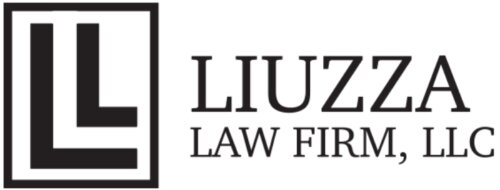Best Drunk Driving Lawyers in New Orleans
Share your needs with us, get contacted by law firms.
Free. Takes 2 min.
List of the best lawyers in New Orleans, United States
About Drunk Driving Law in New Orleans, United States
Drunk driving, also known as driving under the influence (DUI), is a serious offense in New Orleans, United States. It is illegal to operate a motor vehicle with a blood alcohol concentration (BAC) of 0.08% or higher. Penalties for drunk driving can range from fines and license suspension to imprisonment, depending on the circumstances.
Why You May Need a Lawyer
There are several situations where you may need a lawyer to navigate the legal process related to drunk driving:
- If you have been charged with a DUI offense, a lawyer can provide legal representation to protect your rights and minimize the potential consequences.
- If you believe you were wrongfully arrested or subjected to an unlawful DUI checkpoint, a lawyer can help challenge the charges against you.
- If you were involved in a drunk driving accident resulting in injuries or fatalities, a lawyer can help you navigate the legal complexities and potential lawsuits.
Local Laws Overview
In New Orleans, there are specific laws related to drunk driving that you should be aware of:
- BAC Limit: It is illegal to operate a motor vehicle with a BAC of 0.08% or higher for drivers aged 21 and older. For drivers under 21, the BAC limit is 0.02%.
- Implied Consent: By driving in New Orleans, you have implicitly consented to blood, breath, or urine testing if suspected of DUI. Refusing these tests may result in license suspension.
- Enhanced Penalties: If convicted of DUI with a BAC of 0.15% or higher, you may face enhanced penalties, including higher fines, longer license suspension, and mandatory alcohol education or treatment.
Frequently Asked Questions
1. Can I refuse a breathalyzer test if pulled over for suspected drunk driving?
No, you cannot refuse a breathalyzer test without consequences. In New Orleans, under implied consent laws, refusing a breathalyzer test can lead to automatic license suspension, regardless of whether you are guilty of drunk driving.
2. What are the potential penalties for a first-time DUI offense in New Orleans?
Penalties for a first-time DUI offense in New Orleans can vary but may include fines, license suspension, mandatory alcohol education programs, probation, and potential jail time. The severity of the penalties depends on factors such as your BAC level and any previous DUI convictions.
3. How long will a DUI conviction stay on my record?
A DUI conviction can stay on your record for a significant period. In Louisiana, a DUI conviction generally stays on your record for 10 years. It is important to note that subsequent offenses may have longer-lasting consequences.
4. Can I plea bargain or negotiate lesser charges in a drunk driving case?
In some cases, it may be possible to negotiate lesser charges or reduced penalties through plea bargaining. However, the availability of plea bargains depends on various factors, including the specific circumstances of your case, prior convictions, and the discretion of the prosecutor.
5. Should I hire a lawyer even if I believe I am innocent?
Yes, it is still important to hire a lawyer even if you believe you are innocent. A lawyer can provide legal advice, protect your rights, gather evidence, and build a strong defense to prove your innocence and minimize the potential consequences.
Additional Resources
- New Orleans Bar Association: www.neworleansbar.org
- New Orleans Metropolitan Police Department: www.nola.gov/nopd
- The Louisiana State Bar Association: www.lsba.org
Next Steps
If you require legal assistance for a drunk driving case in New Orleans, it is important to consult with an experienced DUI lawyer. They can evaluate your case, provide guidance, and represent your interests throughout the legal process. Contacting a lawyer as soon as possible is crucial to ensure your rights are protected and to build a strong defense.
Lawzana helps you find the best lawyers and law firms in New Orleans through a curated and pre-screened list of qualified legal professionals. Our platform offers rankings and detailed profiles of attorneys and law firms, allowing you to compare based on practice areas, including Drunk Driving, experience, and client feedback.
Each profile includes a description of the firm's areas of practice, client reviews, team members and partners, year of establishment, spoken languages, office locations, contact information, social media presence, and any published articles or resources. Most firms on our platform speak English and are experienced in both local and international legal matters.
Get a quote from top-rated law firms in New Orleans, United States — quickly, securely, and without unnecessary hassle.
Disclaimer:
The information provided on this page is for general informational purposes only and does not constitute legal advice. While we strive to ensure the accuracy and relevance of the content, legal information may change over time, and interpretations of the law can vary. You should always consult with a qualified legal professional for advice specific to your situation.
We disclaim all liability for actions taken or not taken based on the content of this page. If you believe any information is incorrect or outdated, please contact us, and we will review and update it where appropriate.









